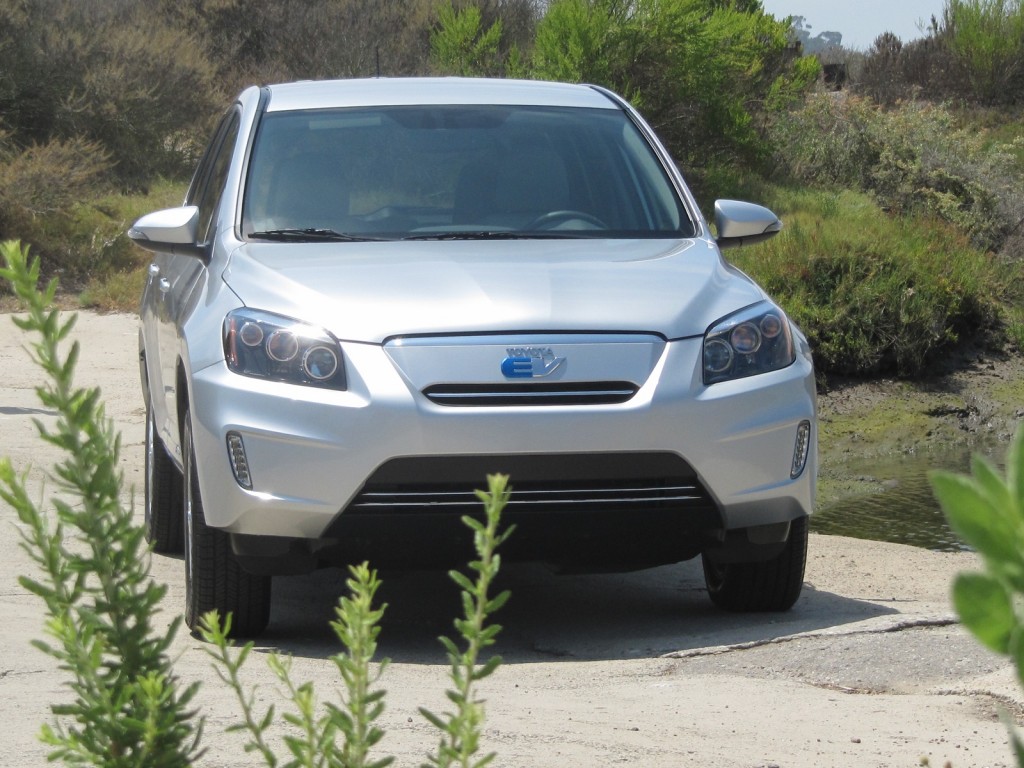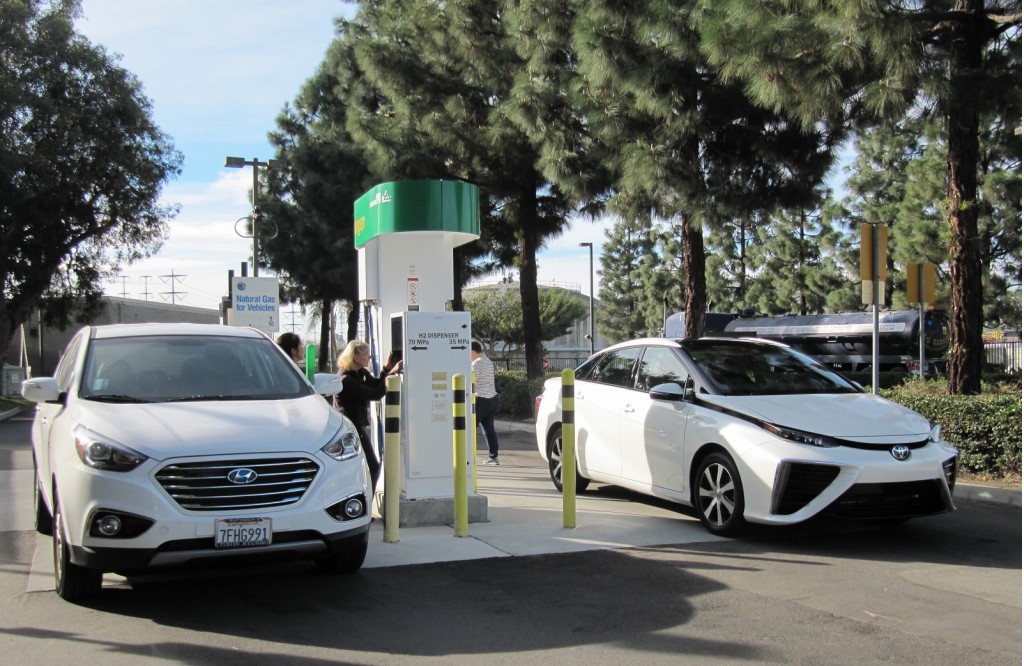The amount of animus between some proponents of plug-in electric cars and those who support hydrogen fuel-cell vehicles is remarkable, and sometimes disturbing.
Each side marshals studies of everything from wells-to-wheels carbon footprint (electric cars win) to "refueling time" to full range (hydrogen vehicles win).
DON'T MISS: Plug-In Hybrids Are The Best Competitors To Fuel-Cell Vehicles: Here's Why
And each side firmly, passionately believes that consumers will see their alternative as preferable.
Meanwhile, manufacturers have lined up in one camp or the other, with a few committed to offering both alternatives.
In general, the rough argument for hydrogen proponents says that above some vehicle weight--let's say roughly 2 tons--hydrogen becomes more practical than batteries to power a vehicle with a range of 200 miles or more.
![Tesla Model X in camouflage being tested at former Alameda Naval Air Station [video: Juan del Real] Tesla Model X in camouflage being tested at former Alameda Naval Air Station [video: Juan del Real]](https://images.hgmsites.net/lrg/tesla-model-x-in-camouflage-being-tested-at-former-alameda-naval-air-station-video-juan-del-real_100499078_l.jpg)
Tesla Model X in camouflage being tested at former Alameda Naval Air Station [video: Juan del Real]
So, hydrogen proponents argue, while battery-electric vehicles are fine for compact cars or passenger sedans, the kinds of trucks, minivans, and SUVs that North Americans buy in increasing quantities are much better suited to hydrogen if a range of 250 or more miles is required.
At least in theory, the Tesla Model X electric SUV and the Tesla Supercharger fast-charging network may disprove that to some degree.
But that vehicle has repeatedly been delayed, and nothing is known so far about its EPA range ratings.
ALSO SEE: 10 Questions On Hydrogen Fuel-Cell Cars To Ask Toyota, Honda & Hyundai
What's needed, we would suggest, is a test in the open market, in which identical zero-emission vehicles could be sold: one powered solely by a battery, the other by a fuel-cell fed from compressed hydrogen.
And in our dreams, that vehicle would likely be a compact crossover utility vehicle.
That form factor is a tougher challenge for electric-car makers than the compact-and-below hatchbacks that have largely been the electric-car offerings to date.

2012 Toyota RAV4 EV, Newport Beach, California, July 2012
In fact, only one such vehicle has been sold--the Toyota RAV4 EV--and that has now reached its compliance-car requirement of 2,600 units and is effectively gone from the market.
It also used a Tesla powertrain, a convenience for Toyota, which is by far the global automaker most committed to hydrogen fuel-cell vehicles and dismissive of electric cars in any form.
Honda, Hyundai-Kia, and Volkswagen Group are the companies that effectively have feet in both camps, as does Daimler.
MORE: Lesson Learned In Last Round Of Hydrogen Fueling: Fund Operations Too
But the parent company of Mercedes-Benz delayed its plans to offer a hydrogen-powered vehicle three years ago, when it combined its development efforts with those of Nissan and Ford--both of which show far less inclination to launch fuel-cell vehicles any time soon.
So we might look to Hyundai-Kia, especially since it has said it intends to be second only to Toyota in offering green cars by 2020.
It already has the Hyundai Tucson Fuel Cell compact crossover on the road, and next year it will launch a dedicated hybrid to compete head-to-head with the Prius.

2016 Toyota Mirai hydrogen fuel-cell car, Newport Beach, CA, Nov 2014
That platform can also be adapted to plug-in hybrids and battery-electric vehicles, said Ki-Sang Lee, a senior vice president who's head of its R&D Center for "eco-friendly vehicles."
And, he added, with more development work further down the road, it might also accommodate a hydrogen fuel-cell powertrain.
So here's our challenge to Hyundai: Build a hybrid and plug-in hybrid crossover SUV on the underpinnings of that dedicated hybrid vehicle.
RELATED: Hyundai Plans Hybrids, Electric Cars & More: 5 Questions With Green R&D Head Ki-Sang Lee
Then offer a battery-electric variation of the compact crossover with, say, 150 miles of range--and a hydrogen fuel-cell as well--in the same showroom.
Let Hyundai's buyers decide which they prefer: a plug-in hybrid with the security of a backup gasoline engine, a fully electric vehicle with the superior passenger experience that offers, or a hydrogen fuel-cell powered electric vehicle with greater range.

Audi A7 h-tron quattro
(Same challenge goes to Honda and to VW Group as well, by the way.)
Then, and only then, will we have a true market test of which kinds of vehicles are desired by actual retail buyers.
Until then, it's all just theorizing.
_______________________________________________













